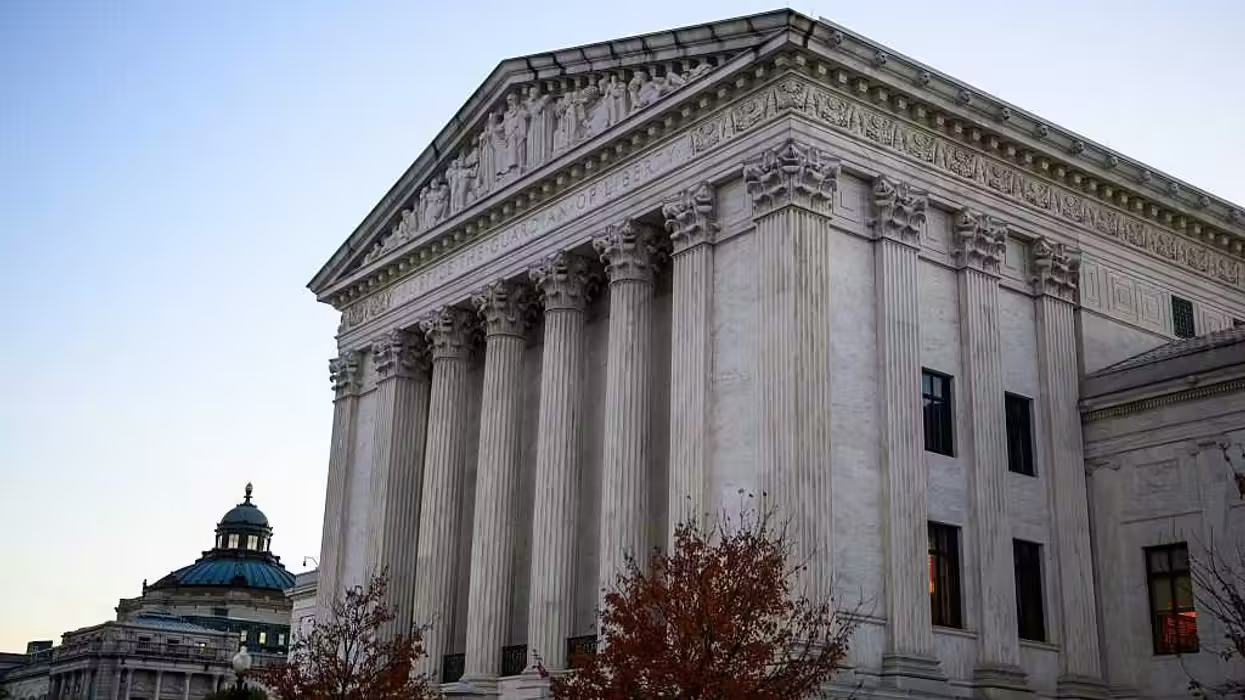© 2026 Blaze Media LLC. All rights reserved.
This Is How the LAPD Modified Its Surveillance Program Following Muslims' Complaints
May 22, 2012
"The mosques have rejected the al-Qaida ideology of death..."
 Over the past few months surveillance programs intended to monitor Islamic communities have come under fire. The Blaze has reported extensively on the New York Police Department's (NYPD) controversial initiative that drew the ire of critics who feel it goes too far. Now, the Los Angeles Police Department (LAPD), after lobbying from Muslim and Sikh leaders, is modifying the way in which it collects data -- specifically when it comes to reporting and examining suspicious activities.
Over the past few months surveillance programs intended to monitor Islamic communities have come under fire. The Blaze has reported extensively on the New York Police Department's (NYPD) controversial initiative that drew the ire of critics who feel it goes too far. Now, the Los Angeles Police Department (LAPD), after lobbying from Muslim and Sikh leaders, is modifying the way in which it collects data -- specifically when it comes to reporting and examining suspicious activities.
According to Religion News Service, since 2008 the LAPD has been using the federal Suspicious Activities Reporting (SAR) program to log reports about potential terrorist actions. It's important to note that the mere action of taking pictures of a building could spawn a report (after all, image gathering is, indeed, a part of the process that some terrorists engage in to better analyze their targets). SCPR.org has more:
The Muslim Public Affairs Council says it's reached an agreement with the Los Angeles Police Department to prevent civil liberties violations under the city's Suspicious Activity Reporting program. SAR was developed in Los Angeles as a way to help prevent terrorist attacks, and has been replicated nationally in a number of cities.The idea behind the program is that police often receive reports of strange behavior, but don't generally follow up unless a specific crime has been committed. The SAR program essentaily empowers police to act on things that may not be obviously criminal and shares such reports with a network of federal and local agencies.
The problem with the program, civil liberties advocates have said, is that innocuous activities — like taking pictures of an airplane, pointing binoculars at a bridge or praying in a parking lot — can look suspicious. And, they point out, when it comes to Muslim Americans, officers and civilians alike may be more likely to find normal behavior suspect.

So, here's how the program is changing. Rather than holding data that is later deemed to represent harmless activity, this information will be removed from the SAR files and from counterterrorism databases. This is to say that authorities will not harbor information that is not in some way explicitly attributed to or connected with troubling behavior or terroristic inclination.
The effort being made here is clearly being undertaken to try and find a middle-ground that doesn't leave Muslims feeling as though they are a direct target of the LAPD and other related authorities. Rather than holding onto non-criminal behavior, law enforcement officials will potentially provide some ease to those in Islamic communities who have felt uncomfortable with current record-keeping procedures.
SCPR.org continues with all of the agreed-to changes:
- Any reporting of incidents by law enforcement on individuals or groups must be connected to criminal activity.
- Any surveillance must have a nexus to terrorism.
- Any report that does not meet that standard will be purged from any intelligence gathering mechanism within LAPD.
- The Inspector General of LAPD, who is appointed by a civilian board of commissioners and is independent from LAPD, will audit the SAR program and will make the audit available for public review.
- LAPD will include a means to track racial bias within the SAR reports to determine if there is any ethnic profiling within the program.
"We're removing noncriminal behavior from SAR reporting, and data on innocuous behavior is being purged," Muslim Public Affairs Council President Salam Al-Marayati said in an interview with RNS. "The community engagement model can work; it's more effective. The mosques have rejected the al-Qaida ideology of death -- that's why it's even more important for law enforcement to partner with the mosques."
In an effort to ease any worries, Cmdr. Blake Chow, who serves with the LAPD's counterterrorism bureau, cited these changes as an example of authorities' efforts to reach out to the Muslim community. Chow pledges that, following the changes, the SAR program will be as robust and effective as always.
(H/T: Religion News Service)
Want to leave a tip?
We answer to you. Help keep our content free of advertisers and big tech censorship by leaving a tip today.
Want to join the conversation?
Already a subscriber?
Billy Hallowell is a digital TV host and interviewer for Faithwire and CBN News and the co-host of CBN’s "Quick Start Podcast."
Billy Hallowell
Billy Hallowell is a digital TV host and interviewer for Faithwire and CBN News and the co-host of CBN’s "Quick Start Podcast."
more stories
Sign up for the Blaze newsletter
By signing up, you agree to our Privacy Policy and Terms of Use, and agree to receive content that may sometimes include advertisements. You may opt out at any time.
Related Content
© 2026 Blaze Media LLC. All rights reserved.
Get the stories that matter most delivered directly to your inbox.
By signing up, you agree to our Privacy Policy and Terms of Use, and agree to receive content that may sometimes include advertisements. You may opt out at any time.






